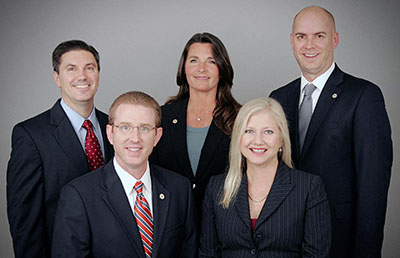The Wellington Village Council gave final approval to its water and wastewater utility budget and rates on Tuesday, Sept. 5, and also held the first of two required public hearings on the village’s overall budget for the new fiscal year that begins Oct. 1.
As discussed at previous meetings, Wellington’s water utility rates will be increasing by 10 percent next year, which is a monthly increase of $6.84.
Deputy Village Manager Tanya Quickel said that the increase is necessary due to rising costs and inflation. In fact, further increases are recommended for future fiscal years to make sure that the village has the revenue necessary to continue the upkeep of its critical utility infrastructure, she said.
The council, however, did not take action on staff’s suggestions for future years, only the upcoming fiscal year. A recent study also suggested issuing new public debt for future utility capital projects, but that is also not included in the current budget.
The proposed utility budget for fiscal year 2024 is $28.2 million, an increase of $3.4 million, or 14 percent. This is due to higher personnel expenses and rising costs for chemicals and spare parts, Quickel explained. Utility capital projects, however, are down $2.6 million.
“The proposed fiscal year 2024 utilities budget continues funding to maintain the utility infrastructure responsibly,” Quickel said, adding that money is being taken out of reserves to help fund the budget.
Mayor Anne Gerwig noted that it is important that the water utility stays ahead of all necessary improvements to protect the health of residents.
Vice Mayor Michael Napoleone agreed.
“This is the most critical infrastructure we have, and people take it for granted,” he said. “This is a public safety item, and you really can’t cut corners there.”
Councilman Michael Drahos added that all responsible governments need to keep investing and reinvesting in their utilities.
“This reflects good fiscal management over a long period of time,” he said.
Gerwig asked for more innovative ways to protect the village’s utility investment without continued increases. She noted that the utility has begun a spare parts program to keep extra parts in house to fix things quickly and less expensively.
“Continuing 10 percent increases on everything is just not sustainable,” she said before the utility budget was approved unanimously.
Turning to the village’s overall budget, the council approved the first reading of the budget unanimously after the first public hearing.
The total budget is $137.7 million, up $9 million over the current year’s budget, based on the latest figures available. While the property tax rate of 2.47 mills is unchanged, there is an increase in the Acme Improvement District drainage assessment from $230 per unit to $255 per unit, as well as increases in solid waste collection rates. Those assessment increases were approved previously.
The 2.47 mills will provide approximately $27 million in revenue, bolstered by a 12.1 percent increase in the village’s taxable value. That means that while the rate remains the same, most property owners will see some increase in their village taxes, although that will be small for homesteaded properties.
Quickel noted that only 18 percent of a Wellington resident’s total tax bill goes to the village. The rest goes to the county, the school district and other taxing authorities.
“This proposed budget funds Wellington’s high levels of service, and includes great projects, with no millage rate increase,” Quickel said.
Gerwig said that while people want the higher levels of service that Wellington provides, she wants to make sure that the budget does not continue increasing dramatically, particularly in the area of capital projects.
Councilman John McGovern noted that the village is keeping 32 percent reserves in the general fund.
“That has been our longstanding policy to make sure that we have reserves in case there is some kind of catastrophe or crisis,” McGovern said.
He added that while other municipalities are lowering their millage rate slightly, Wellington made the decision five years ago to set the rate at 2.47 mills and leave it there.
“We made the decision not to play that up and down game with the political winds,” McGovern said. “I think this is a good budget for where we are.”
The second public hearing and final adoption of the budget is set for Wednesday, Sept. 20.








